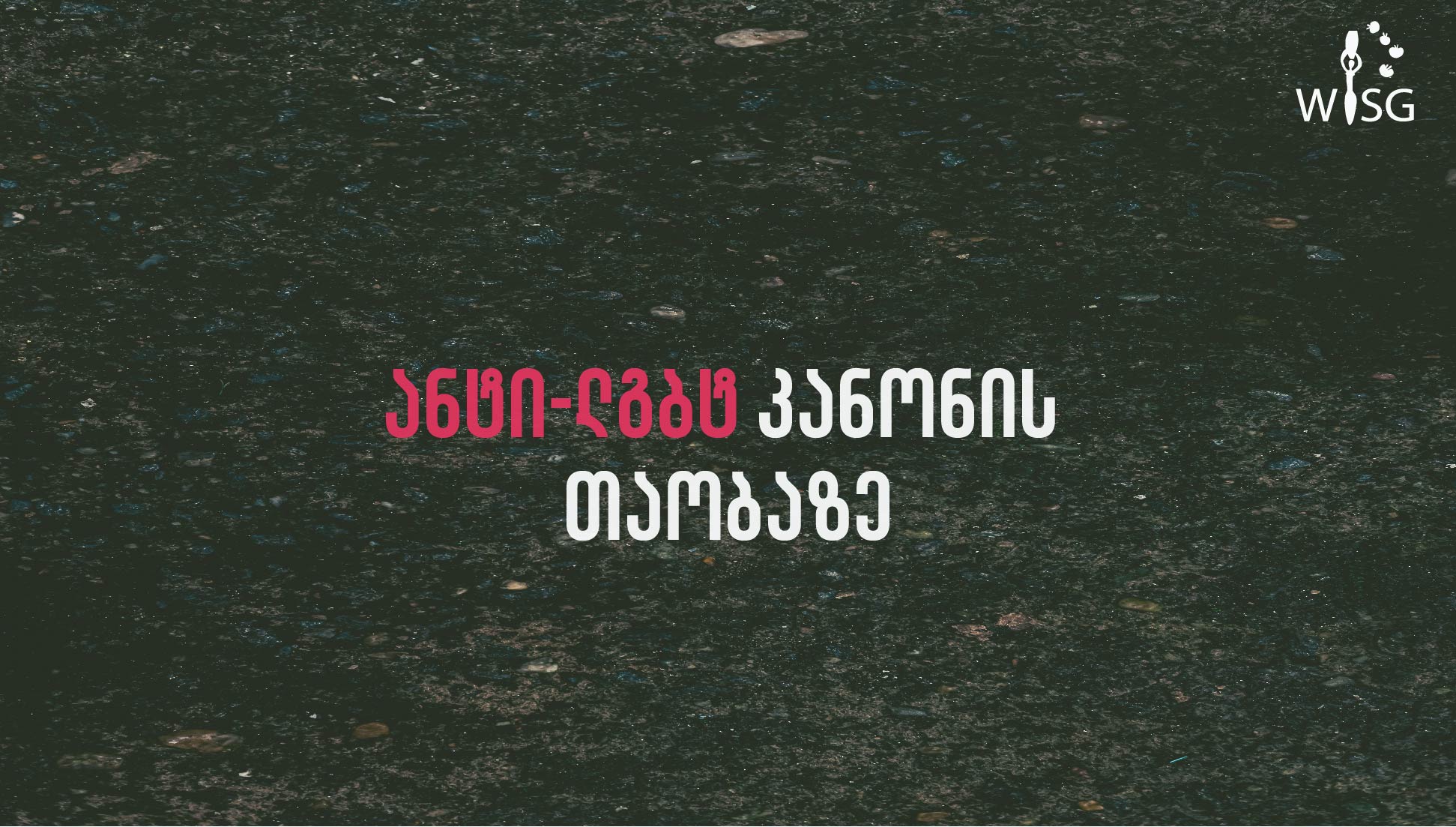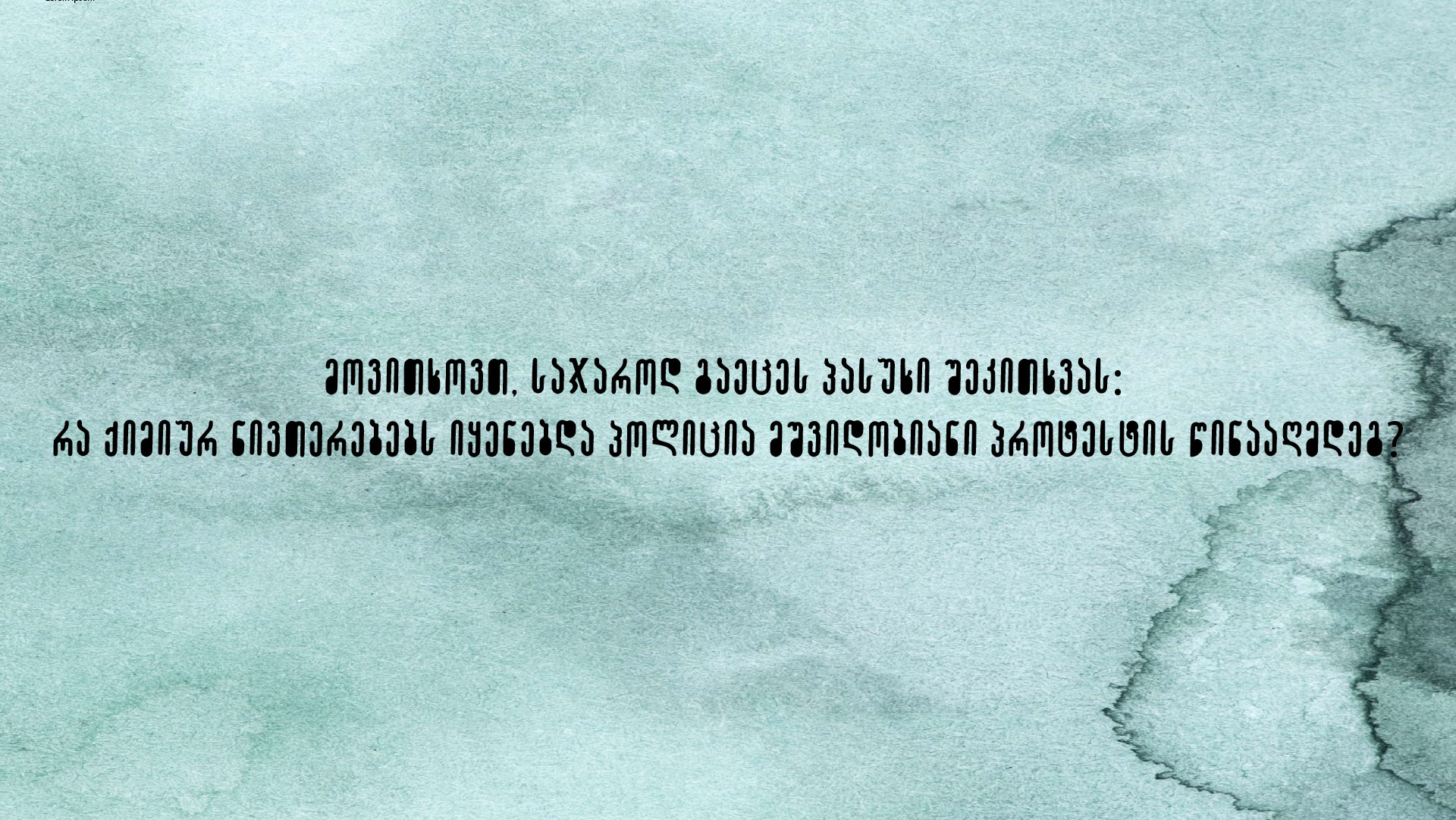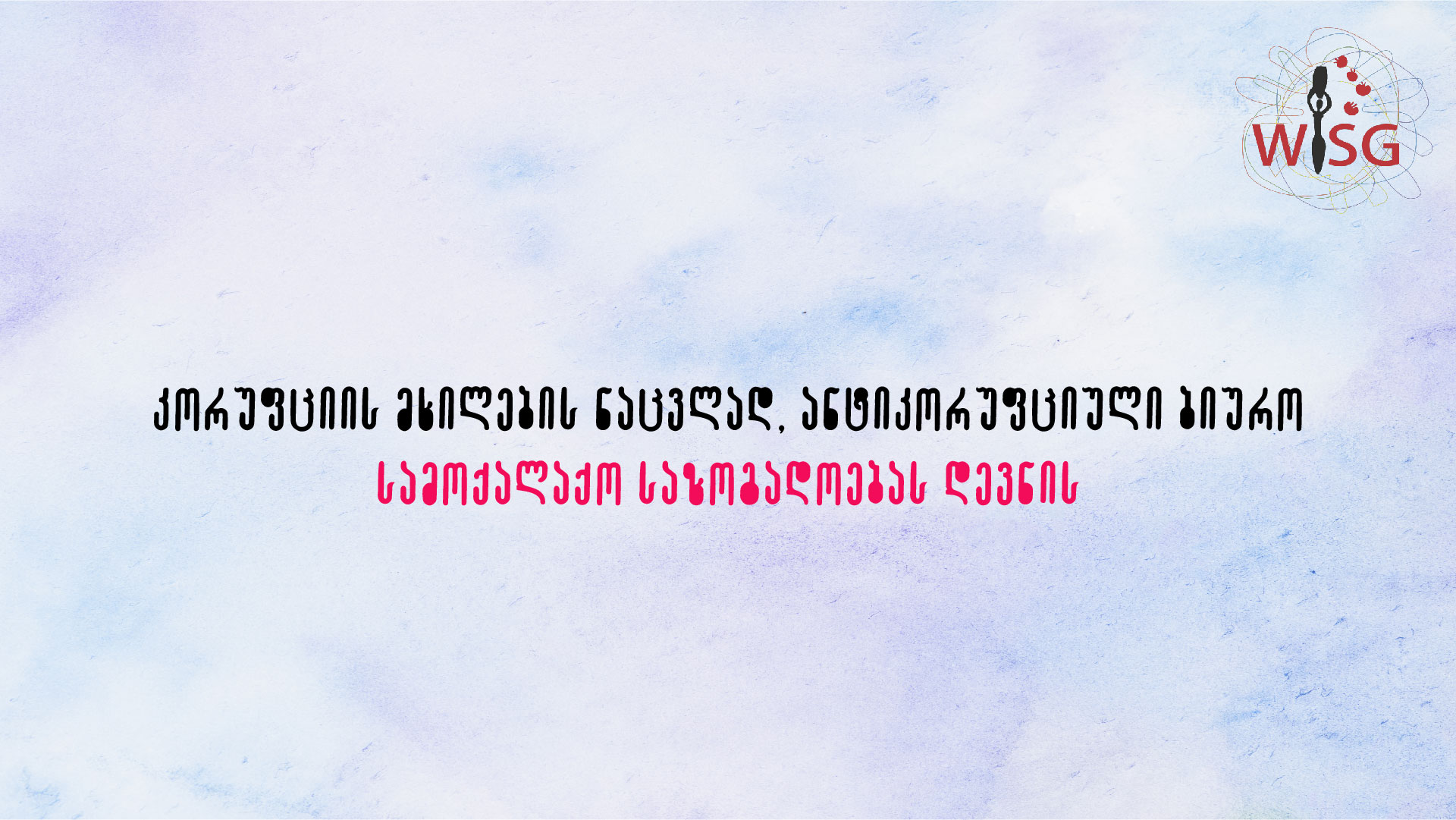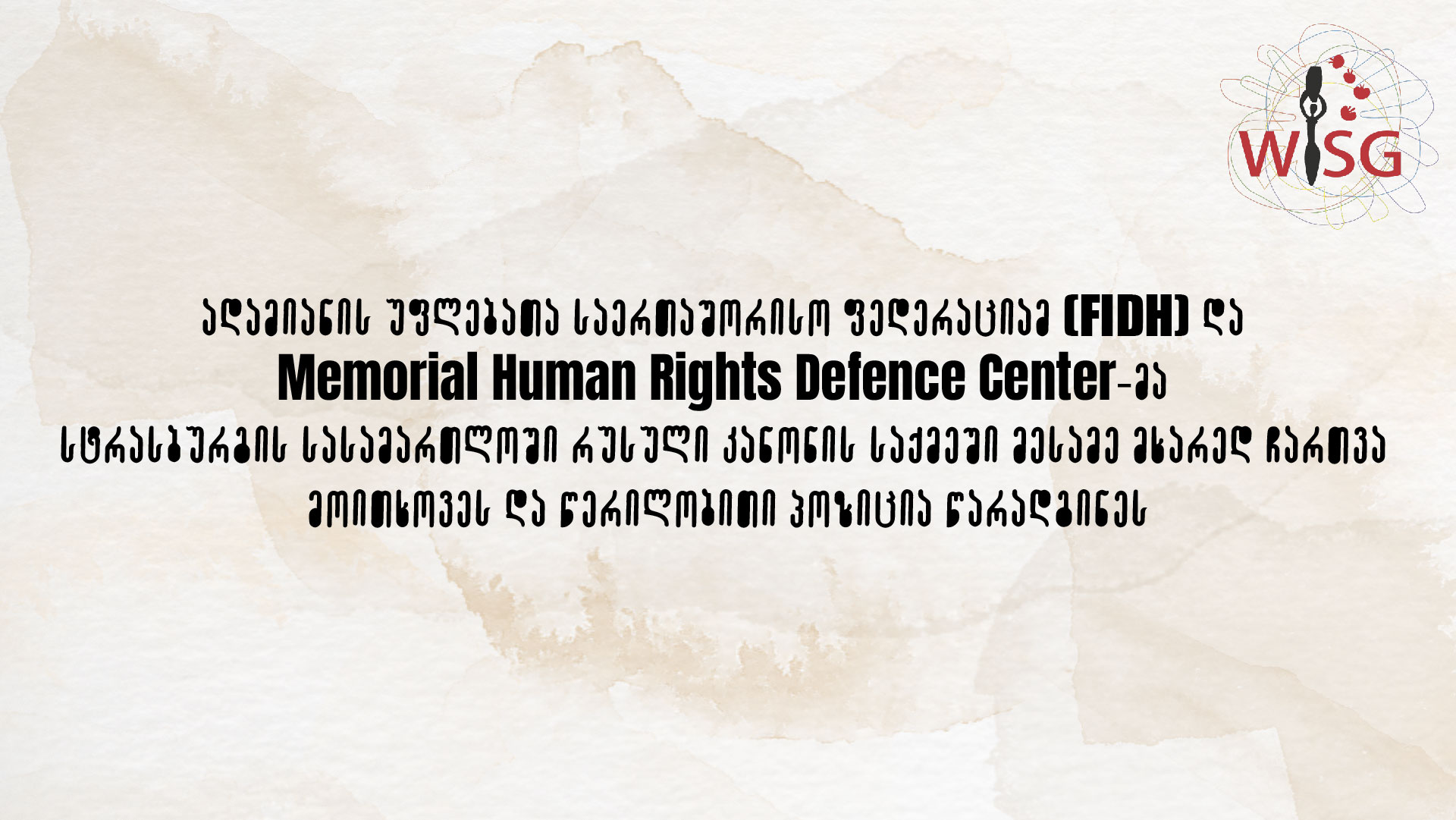The ruling party has initiated efforts to formalise an ideology of hatred at the legislative level. On June 26, with a simple majority of 78 votes, parliament passed the first reading of a legislative package targeting anti-LGBT and anti-censorship measures, proposing changes to 18 laws. Meanwhile, the draft constitutional law titled 'On Family Values and Protection of Minors,' which bears little relation to the goals suggested in its title, has been postponed. This delay will remain until the necessary 113 votes can be gathered in parliament, which requires the attendance of opposition parties, most of whom—except for 'Girchi'—are currently boycotting the process.
This year’s pre-election campaign by 'Georgian Dream' was overtly driven by hate, homophobia, transphobia, and conspiracy theories around so-called 'LGBT propaganda'. On April 29, during a government-organised rally, the party leader publicly confirmed the use of the LGBT community as a political tool. Bidzina Ivanishvili, deviating from his earlier stance at the start of Georgian Dream’s governance, has revived the tradition of political homophobia. He labelled LGBT individuals as 'agents' of opposition parties and foreign forces aiming to introduce 'pseudo-liberal values' to Georgia, undermine the country’s sovereignty, incite war, and seize power.
In recent years, other 'Georgian Dream' leaders, particularly Prime Ministers Irakli Gharibashvili and Irakli Kobakhidze, have signalled an intensified approach to mobilising hatred toward LGBT people as a political strategy by participating in events like CPAC Hungary, they have shown that the ruling party intends to expand the use of tactics commonly employed by ultra-right leaders worldwide for authoritarian power consolidation.
In classic authoritarian fashion, "Georgian Dream" has continually cast queer people as enemies, fueling homophobic and transphobic sentiments both directly and indirectly. Unsurprisingly, after 12 years in power, the ruling party is again attempting to distract a society grappling with economic and ecological crises by focusing on LGBT people, portraying them as a looming threat in this election year.
The parliamentary majority driving this bill is adopting tactics previously used in countries like Russia and Hungary, manipulating the concept of the "best interest of the child" to spread homophobic hatred. They label "LGBT propaganda" as a threat and pledge to enact a homophobic, censorship-based law to counter it.
Similar to the "Transparency of Foreign Influence" law—about which the Prime Minister claimed, despite heavy EU criticism, that its adoption would increase Georgia’s chances of opening EU negotiations by 20-30% (when in reality, it led to a halt in Georgia's accession process)—the leaders of "Georgian Dream" also assert that the anti-LGBT legislative package does not undermine any fundamental rights recognized by the Constitution or other laws. Yet, every provision of the anti-LGBT bill, its accompanying explanatory note, public statements from majority members, arguments in committee and plenary sessions, and pro-government media coverage on the topic have served only to openly incite hatred against LGBT people and effectively dismantle protections against discrimination based on gender and sexuality.
One of the bill’s initiators, Rati Ionatamishvili, frames the extensive prohibitions on fundamental human rights listed in the bill as a "moral question," dismissing the constitutional protections outlined in Georgia's anti-discrimination law. These rights, as recognized by Georgian law and upheld by the European Court, would be significantly undermined if the bill is adopted, imposing censorship across numerous areas, including education, creative expression, healthcare, and broadcasting.
A brief overview of how different clauses in the constitutional draft contradict the Constitution of Georgia, as well as the laws and practices upheld by the European Court:
Banning same-sex marriage is largely redundant since current laws already prevent queer people from marrying. However, this new ban will extend to prohibit any form of civil union that resembles marriage. This approach contradicts the European Court's precedent, which states that, in the absence of marriage, same-sex couples should have access to civil unions or registered partnerships.
Banning LGBT individuals from adopting or fostering minors also violates the case law of the European Court of Human Rights. The Court has ruled that denying adoption rights based on sexual orientation infringes upon a person's right to privacy and protection from discrimination. Furthermore, it is ambiguous how one could assess a person's "true" gender identity or sexual orientation if they do not publicly disclose it.
Prohibiting access to trans-specific health services and criminalizing medical procedures that some transgender individuals undergo during their transition would make these essential treatments illegal, potentially endangering their physical and mental health. Clearly, this ban violates the Constitution of Georgia, the anti-discrimination law, and the practices established by the European Court of Human Rights.
The criminalization of trans-specific medical procedures is particularly concerning, as it would make any medical intervention for transgender individuals during their transition—both for healthcare providers and medical institutions—illegal. This includes imposing criminal liability for gender confirmation surgeries. According to a 2019 report, direct or indirect criminalization of the transgender community is present in only 13 countries worldwide.
The prohibition of legal recognition of gender in the proposed legislative initiative would repeal Article 78, Clause "g" of the Law of Georgia "On Civil Acts," which currently allows individuals to change their gender designation on civil records by submitting a certificate of gender confirmation surgery. This practice is already at odds with human rights standards; in 2022, the European Court of Justice ruled that it violated Article 8 of the Convention in the case involving three transgender men from Georgia. The proposed change would exacerbate the challenges faced by transgender individuals in their daily lives and contribute to their discrimination.
The prohibition of academic freedom and comprehensive education about human sexuality poses a significant threat. The bill declares that topics related to gender identity and sexual orientation are unacceptable in educational programs, from early childhood to higher education. This omission undermines the essential need to teach about these issues in universities, particularly in relation to the anti-discrimination law and the Criminal Code. Without addressing these topics, it is impossible to effectively educate about discrimination and hate crimes. Furthermore, these issues are integral to international human rights law, raising concerns about how to teach case law from the European Court under this restrictive law. This provision illegitimately limits academic freedom, violating both the Constitution of Georgia and international human rights standards.
Regarding early education and educational institutions, comprehensive education about human sexuality is critically needed but has yet to be effectively incorporated into educational programs.
Even more troubling, the legislative package criminalises direct communication with minors about sexual orientation and gender identity, which could include discussions by individuals who aim to provide essential information and support.
Freedom of Expression. The proposed legislation would impose censorship on the broadcasting of information related to sexual orientation and gender identity. Additionally, creative works addressing these topics would also be subject to censorship.
Right to Assembly and Demonstration. The right to peaceful assembly and demonstration concerning sexual orientation and gender identity would face significant restrictions. The law would limit the freedom to assemble for the purpose of raising awareness about homo/bi/transphobia or the legal status of LGBT individuals, which contradicts both the Constitution of Georgia and the European Court's rulings regarding Georgia.
An amendment to the Law on "Assemblies and Demonstrations" would allow police to use force against gatherings of LGBT people and their supporters, even without a legal basis to disband the assembly. Under this law, police could simply request that the assembly or demonstration be terminated, and if it is not dissolved within 15 minutes, law enforcement would be authorized to take action to disperse it according to Georgian legislation.
Prohibition of Neglecting Biological Sex in Employment. This legislative measure appears aimed at promoting discrimination based on gender identity within employment relationships. Its primary intention seems to be to exempt employers from adhering to the anti-discrimination provisions outlined in the Labor Code.
Just one day before the first reading of this legislative package in Parliament on June 25, the Venice Commission released its assessment of the draft constitutional law "On Family Values and Protection of Minors." The Commission concluded that Georgian authorities should refrain from pursuing the adoption of this draft law, as it contradicts the precedent set by the European Court of Human Rights and Georgia's obligations under international agreements. The Commission warned that enacting such changes could incite hostility and foster a stigmatised environment for LGBT individuals in Georgia.
The Venice Commission urged the Georgian government to consider these points and refrain from accepting such changes. If the state persists in advancing the draft law, the Commission recommends amendments aimed at protecting the right to equality. These amendments would involve removing most articles from the constitutional draft to align the law with anti-discrimination standards.
The Parliament of Georgia plans to finalize the package of anti-LGBT amendments in the second and third readings, scheduled for September, just before the elections. It is also noteworthy that during the second reading, the proposed changes could become even more restrictive, potentially extending the discriminatory impact of the law to even broader segments of society than the current version encompasses.







